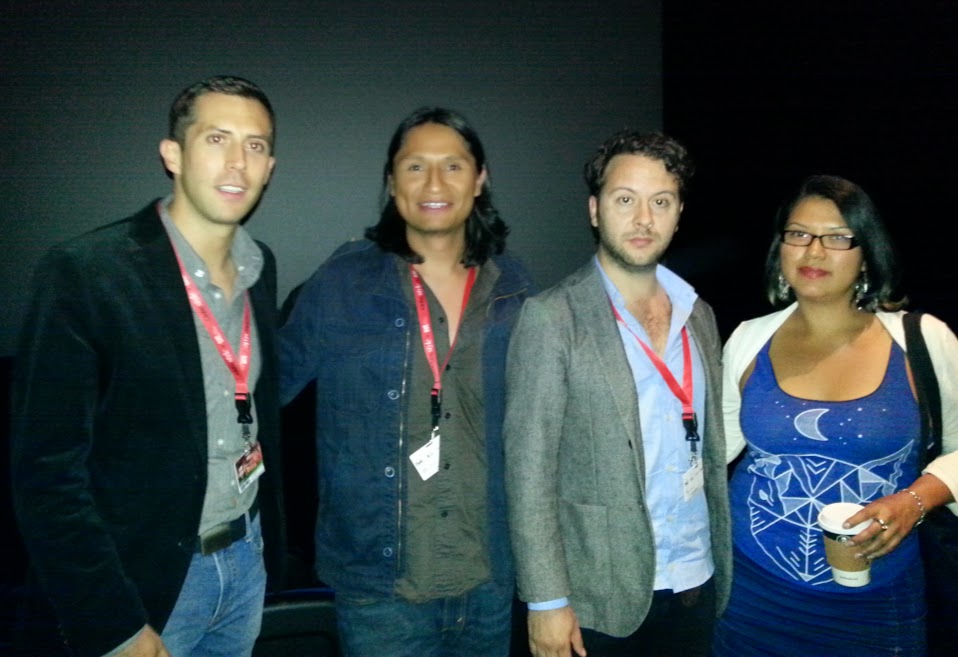As many of you know, I am a big fan of documentary films and filmmakers. I find that no matter if it is a first-feature, or a project by a veteran documentarian, and irrespective of the production value, we can learn something about anything and anyone through documentaries. These are the films that many times push for change, that anger you, and that at times, also place a mirror on society as a whole.
Hence my thoughts on The Years Of Fierro /Los años de Fierro, which had its first screening at TIFF Sunday night. The documentary is about César Fierro, the oldest Mexican prisoner who has been in Death Row in Texas for the past 30+ years. The film is described as “a reflection on justice, imprisonment and brotherly love, through the eyes of César and his bother, Sergio. These two brothers still hope to meet again, no matter the time or the distance”.
Director Santiago Esteinou, along with editor Javier Campos, and producer Alejandro Durán (pictured below) have certainly told the story of these two men, whom by circumstances have been imprisoned — literally and figuratively — thanks to the shady detective work by police forces on both sides of the border between Mexico and the United States. Both César and Sergio were labelled as delinquents from a very young age. Thus, the police in Ciudad Juárez (where they grew up) would often arrest them for petty crimes. The brothers crossed the border North to the U.S. more than once, and their delinquent label followed them there too. No thanks to the words of an ‘informant’, Fierro was later accused of killing a taxi driver in Juárez.
The police did not follow due diligence, in my opinion, and with Fierro’s case history, he was charged with murder, and the case was closed. As many of the lawyers who’ve been involved in this case explain, the police need to close cases quickly and ‘swiftly’. When someone like Fierro is pointed out to be the culprit, it makes it much easier to close. This is a story we have often read about or watched, as in Ken Burns‘ documentary, The Central Park Five, for example.
 |
| L-R: Santiago Esteinou, Javier Campos, Alejandro Durán, Hye M. |
This film adds to the on-going discourse on human rights violations when it comes to men in prison, wrongfully accused, and whose basic human needs are ignored. At the Q&A post screening, Esteinou and team explained they mainly wanted to point out that César is an actual person. He is someone who has been denied justice, and whose imprisonment has affected more than the individual incarcerated. His entire family has suffered the loss of a son, a father, a brother. It is in this aspect that Sergio’s story is also relevant. The brothers were often inseparable, since childhood. The loss they have both experienced makes this human experience more tangible, and heartbreaking.
Why would I suggest you see this documentary? Because these stories are relevant. Because the so-called justice system has failed families time and time again. Because a past history of delinquency should not be the main reason for authorities to continually arrest the same individuals. Nor should it be a label someone carries for life. People can change. It is also important that as a society, people have access to basic needs such as education, work, and a safe place to live. People are not numbers. César Fierro and other prisoners in similar situations are not numbers, either.
This film has an added screening today, September 9th, 9:00pm (Scotiabank 5), and screens again on Sunday, September 14th, 9:45am (Bloor Cinema). For more details on this and other TIFF Docs programming, visit tiff.net.



